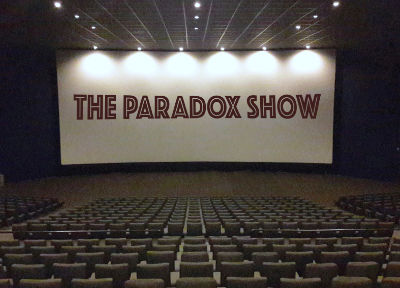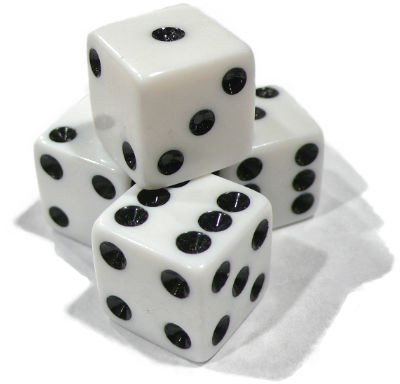
https://commons.wikimedia.org/wiki/File:Sala_de_cine.jpg
| HPS 0628 | Paradox | |
Back to doc list
Prolog
John D. Norton
Department of History and Philosophy of Science
University of Pittsburgh
http://www.pitt.edu/~jdnorton
Paradoxes! Why have a text devoted to them?
There are many good reasons. Paradoxes are by their nature both fascinating and entertaining. A good paradox grabs your attention. It stays with you. It needles you. The best of them leave you perplexed. You keep coming back to them, looking for the loophole, the escape and the avenue that lets you make peace with them.
If puzzles entertain you, this is entertainment for you at a higher level.

https://commons.wikimedia.org/wiki/File:Sala_de_cine.jpg
That is just the start. Resolving an intriguing paradox requires clarity and discipline of thought. A worthy paradox will not yield to loose thinking. An incomplete resolution leaves openings through which doubts and second thoughts will eventually enter. When finally you have broken a paradox and solved it, you know it and you know that there is no escape. And it is a moment of great satisfaction.
This type of clear and careful analysis is what good philosophical analysis demands. This is what is needed in philosophy. For the great philosophical problems are, by nature, ones that require clear and careful analysis. The match of paradox and philosophy is, therefore, no accident. Much philosophical analysis begins with an intriguing paradox.

Aristotle
https://commons.wikimedia.org/wiki/File:Aristotle_Altemps_Inv8575.jpg
There is more. The paradoxes in this text have been selected for their importance in particular parts of philosophy of science. Broadly speaking, they develop around two themes.
First is the idea of infinity. It is a notion that rapidly immerses the unwary in travails and conundrums. We can only now deal with infinity safely because of many centuries of careful thought about it and how properly to treat it. Thanks to these efforts, infinity can now seem familiar and untroubling, where past generations approached it with trepidation. Paradoxes, as we shall see, have played a major role in this transformation.

Second is the idea of chance. Once again it is an idea whose subtlety can easily be overlooked. Most of us learn the rudiments of probability theory in high school, without realizing the intrinsic cleverness of it. Once one learns the notion of probabilistic independence, it becomes obvious that no observation of past outcomes will be of any use in aiding the roulette gambler. Paradoxes can reveal just how much probabilistic ideas correct and retrain our intuitive thinking about chance. More paradoxes can reveal how chance in its broadest scope can escape the confines of probability theory.

There is much to explore here and paradoxes will be our guides.
May 28, 2021
Copyright, John D. Norton